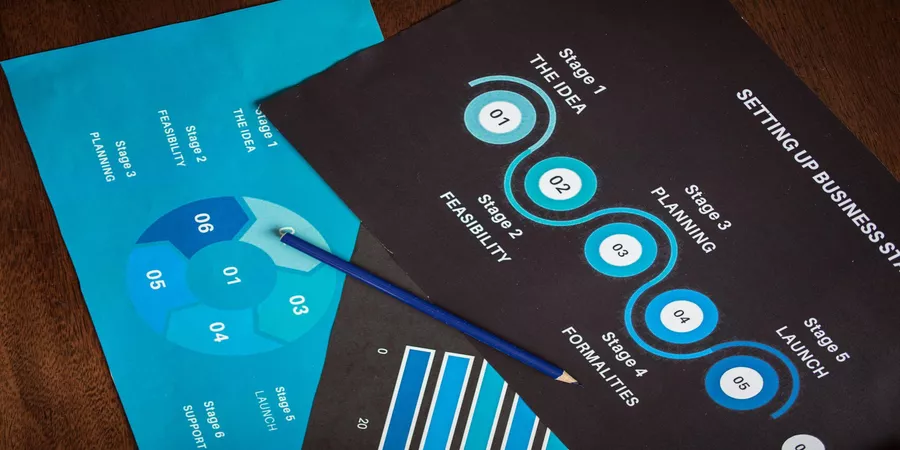You’ve probably noticed how the business world feels like it’s in constant motion. One moment, markets are soaring; the next, they’re reacting to new technologies, global events, or policy shifts. For modern leaders, change isn’t something that happens occasionally. It’s the new normal. And while uncertainty can feel overwhelming, it also opens the door to innovation, creativity, and growth.
Thriving in this kind of economy means being proactive, adaptable, and curious. It’s not enough to rely on experience or traditional business models. Instead, you need to evolve with the world around you, continually learning, improving, and rethinking what effective leadership looks like. The leaders who rise above uncertainty are the ones who treat change as an opportunity, not a threat.
So, how do you strengthen your ability to lead when the ground beneath you keeps shifting? The journey begins with something simple but powerful—lifelong learning and leadership growth.
Embrace Continuous Learning and Leadership Evolution
In a rapidly changing economy, the strongest leaders are those who never stop learning. The old rules of leadership, built around hierarchy and routine, don’t hold up in today’s environment. Instead, success depends on your ability to adapt quickly, make informed decisions, and lead with confidence even when outcomes are uncertain.
That’s where continuous education becomes a key part of leadership growth. If you’re looking to enhance your strategic thinking, strengthen your global perspective, and refine your decision-making skills, enrolling in an executive MBA program can help you gain the tools to lead effectively in a fast-changing economy. Programs like these are designed specifically for working professionals who want to elevate their business acumen without stepping away from their careers. You’ll learn how to analyze challenges from multiple perspectives, manage teams across industries, and build strategies that work in real time.
The goal isn’t just academic. It’s practical. Through case studies, collaborative projects, and exposure to real-world challenges, you’ll discover how to anticipate change rather than react to it. This kind of learning sharpens your ability to navigate ambiguity, make confident choices, and guide your organization toward long-term success.
Foster Agility Through a Culture of Adaptation
Agility has become the cornerstone of thriving in an unpredictable economy. You can’t control external factors, market shifts, global crises, or sudden industry disruptions, but you can shape how your team responds to them. Encouraging adaptability within your organization helps you pivot quickly and maintain momentum even when things don’t go as planned.
Start by fostering a culture where flexibility and experimentation are valued. Instead of sticking to rigid processes, give your team room to test ideas, learn from mistakes, and innovate. Encourage open communication and celebrate creative problem-solving. When your employees feel empowered to adapt, your organization becomes stronger and more resilient.
As a leader, your example matters most. Show your willingness to embrace new technologies, adjust strategies, and listen to fresh perspectives. Agility isn’t about speed alone. It’s about foresight, preparation, and trust in your team’s ability to handle change.
Leverage Technology for Smarter Decision-Making
Technology is both a disruptor and an enabler in the modern economy. From artificial intelligence to advanced analytics, digital tools can transform how you make decisions, streamline operations, and connect with customers. But to truly benefit, you need to understand technology, not just implement it.
Use data to drive insight rather than rely on intuition alone. Digital dashboards, predictive analytics, and automation can help you identify trends before they become crises. Technology also allows you to stay connected with remote teams, manage supply chains efficiently, and personalize customer experiences, all key factors for staying competitive in an unpredictable world.
However, technology is only as effective as the mindset behind it. When you combine tech literacy with critical thinking and ethical awareness, you build a foundation for long-term success.
Prioritize Emotional Intelligence and Human-Centered Leadership
Economic uncertainty can create anxiety across organizations. Employees may worry about job security or shifting priorities. That’s where emotional intelligence becomes one of your greatest assets as a leader.
When you communicate openly, show empathy, and listen to your team’s concerns, you build trust, and trust leads to stability. Emotional intelligence allows you to remain composed under pressure and to motivate others during times of change. It’s not about pretending challenges don’t exist; it’s about facing them together with understanding and clarity.
High-EQ leaders also recognize that innovation thrives in psychologically safe environments. When employees feel valued and respected, they’re more likely to share bold ideas and take calculated risks. By balancing emotional awareness with strategic decision-making, you create a workplace where people feel connected to a shared vision, even when conditions are uncertain.
Build Resilient Strategies for Long-Term Growth
Short-term reactions may help you survive a downturn, but resilience ensures you grow beyond it. Building resilience starts with planning, anticipating challenges, diversifying operations, and maintaining financial flexibility. A resilient leader prepares for multiple outcomes, ensuring their organization can pivot without losing its core direction.
One effective strategy is scenario planning. By mapping out different economic possibilities, you prepare for best- and worst-case situations without panic. You can also strengthen your supply chains, invest in sustainable practices, and explore new markets to reduce dependence on a single source of revenue.
Resilience isn’t about avoiding failure. It’s about recovering faster.
Network and Collaborate for a Broader Perspective
No leader thrives in isolation. In a changing economy, collaboration is one of the most powerful ways to stay informed and inspired. Building a diverse network exposes you to new ideas, fresh strategies, and industry insights you might not find within your own circle.
Seek out conversations with peers in other sectors, attend leadership events, and participate in professional communities. Collaboration encourages creative thinking and helps you recognize opportunities that others might miss. You may discover innovative ways to apply lessons from one industry to another or build partnerships that expand your organization’s reach.
Strong networks also provide emotional support. Talking with other leaders who face similar challenges reminds you that you’re not navigating uncertainty alone, and that shared knowledge can lead to shared success.
Maintain Ethical Leadership and Corporate Responsibility
When the economy wavers, it’s tempting for companies to cut corners to protect profits. But ethical leadership remains a defining trait of businesses that endure over time. Doing what’s right even when it’s difficult builds credibility and long-term trust with employees, customers, and stakeholders.
Leading responsibly means being transparent in your decisions, treating employees fairly, and considering how your choices impact society and the environment. In today’s economy, consumers and investors pay close attention to corporate values. Businesses that act with integrity often find themselves more resilient because they inspire loyalty and respect.
The economy will never stop changing, but that doesn’t mean you can’t thrive within it. The key is to embrace uncertainty as a chance to grow rather than something to fear.
Remember, thriving in a constantly changing economy isn’t about predicting every twist and turn. It’s about building the mindset, skills, and resilience to handle whatever comes your way. When you invest in your own growth and lead with clarity and purpose, you don’t just survive change, you define it.









